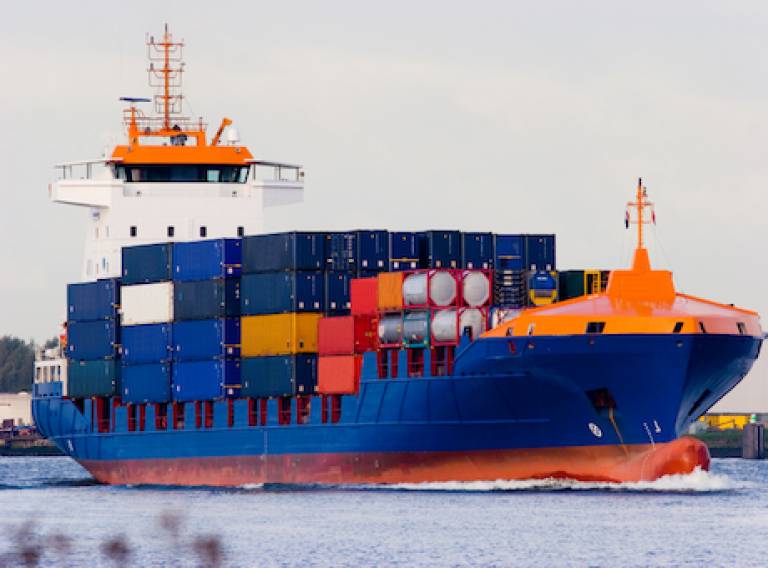UCL survey into implementation of technical energy efficiency measures in shipping
11 June 2015

The survey conducted by Dr Nishatabbas Rehmatulla at the UCL-Energy Shipping Group is the first study to assess the level implementation of technical energy efficiency measures at the ship level (e.g. by ship type and ship size) and at the company level.
The survey received a significantly high number of responses compared to previous studies that have attempted to do the same at an aggregate level. This positive outcome reflects the shipping companies evolving attitudes towards energy related research. “There exists virtually no publically available data to gauge the implementation of energy efficiency measures thus the survey was deemed to be the most appropriate method for collecting the data. Every effort was made to make the study generalizable and representative using a carefully selected sampling approach, that targets the major sectors, company sizes and regions or shipping clusters” says Dr Rehmatulla.
The survey results show that the most common strategy at the firm level was to buy energy efficient newbuilds and retrofit existing ships, with larger companies opting for these strategies more than the smaller ones. Almost fifty energy saving measures were classified into six categories. The results showed that in each category there were a handful of prevailing options selected by the firms. The findings also suggest a consistent pattern of newer ships adopting more of the measures compared to existing ships through retrofits, although the levels of retrofits also show good level of retrofitting activity amongst the various ship types.
These findings are important to improve the modelling of take-up of energy efficiency measures in GloTraM (a holistic model to better understand the shipping system). The results of the survey provide a baseline for the model and act as a validation method. The model would then be used to forecast longer term scenarios around technology uptake in order to meet the challenge of curbing emissions from the shipping sector. It is possible that an 80-90% reduction in energy efficiency on today’s levels is required by 2050 if the sector is to maintain its current share of 2-3% of global CO2 emissions and in light of existing globally agreed targets. Given this deep decarbonisation challenge, technological energy efficiency measures need to be exploited at all levels in tandem with system wide operational energy efficiency measures as crucial first strategies for the shipping sector to control its emissions.
 Close
Close

